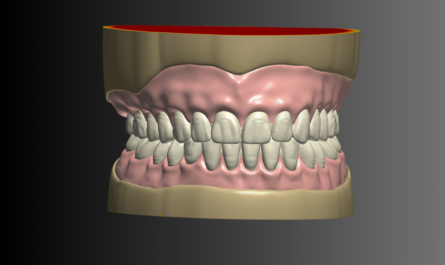When a ‘lone wolf’ affiliates with a DSO, strong communication can smooth the transition for both
Dentistry has long been the province of lone wolf doctors: One doctor, maybe two, operating with a small staff, relatively autonomously, doing their best for their patients. Near the end of his or her career, the lone wolf identifies a potential buyer – perhaps a recent dental school grad – and brings him or her on as an associate, then sells the practice to him or her. It’s a system that has worked well for years.
But with today’s dentists facing rising dental school debt, tough competition and other factors, lone wolves – young and old – are seeking new alternatives. Some embrace the dental service organization, others are more cautious. Either way, when a former lone wolf affiliates with a DSO, both sides should be prepared for a little “getting to know you” time.
Good communication – and lots of it – can smooth the transition, according to Rich Beckman, CEO, and Kristy Loomis, vice president of human resources, Great Expressions Dental Centers.
Great Expressions is a Bloomfield Hills, Mich.-based dental services organization comprising 215 practices in nine states. Initially a single practice in Dearborn, Mich., founded in 1975, Great Expressions has grown primarily through affiliation ever since. In fact, the company opened its 50th location in 2002, and its 200th in 2012.
Before the deal is signed
Communication commences well before an affiliation deal is finalized, says Beckman. Many times, that means clearing up some misconceptions on the part of the dentist or dental practice, including the misconception that DSOs are in the business to make money at the expense of good patient care.
Great Expressions – like standalone dental practices – is a for-profit enterprise, says Beckman. Both generate profits by providing excellent patient care. “We’re looking for long-term patients, [for whom we want to provide] care from the time they are a child until after retirement. We want to provide care to the patient and solve their problems by making it affordable and convenient.
“I keep hearing the term ‘corporate dentistry,’” he continues. “There is no such thing as that. Doctors make their decisions based on what they think is best for the patient.”
Young dental school graduates are quicker to embrace the DSO model than their older colleagues, says Beckman. It’s not uncommon for recent graduates to carry a debt load of $300,000 to $400,000. Given that, as well as the expense of outfitting a new practice, many of today’s graduates are reluctant to rent a building or office and hang a shingle. Joining a professional corporation managed by a DSO is a good option, he says.
“They get lots more responsibility, and they get a lot of mentoring. We have our National Doctor Panel and clinical partners in every region that [new dentists] can lean on. Depending on the office, they may have mentors in the office to help. It’s a good and quick way to get up to speed.” Great Expressions offers dentists the opportunity to make a good income, take advantage of flexible hours, if that’s what they need or desire, and follow a career path that aligns their goals with the needs of the DSO.
For the over-50 dentist, the DSO represents a new market to whom they can sell their practice, says Beckman. By affiliating with a DSO such as Great Expressions, the more experienced dentist can continue to practice, enjoy a good deal of autonomy, and invest some of the proceeds of his or her practice into the management company.
Team members
Support team members – managers, hygienists, assistants, etc. – need to be welcomed in the DSO as well. Again, communication works.
“When we affiliate with a practice, we go out of our way to integrate the team members as best we can,” says Beckman. That said, staff should expect some changes following affiliation. Through GEDC University, Great Expressions provides training on improving the patient experience, dealing with payers, and understanding treatment protocols.
Some team members may have bought into the myth that DSOs are out for the almighty dollar, he says. It takes work to change that attitude. “Some people may think we’re pushing things onto the patient. But we’re not. It’s a question of, ‘Are you interested in the patient’s best health? If so, here’s how you provide it.’” That’s why Great Expressions emphasizes oral cancer screening for high-risk patients, and thorough periodontal care, given the link between periodontal disease and heart disease.
Newly affiliated practices should expect a systems change as well. Furthermore, team members will probably encounter insurance providers they’ve never worked with before. Fees will change, sometimes upward.
Great Expressions makes every effort to prepare doctors and team members of newly affiliated practices about these changes, says Beckman. Still, “you can listen to people about change, and you know it’s going to happen. But when you have to deal with it, change is hard.”
Motivations differ
Dentists affiliate with DSOs for different reasons, and the successful DSO accommodates as many as possible, says Loomis.
Some doctors are eager to hand over virtually all non-clinical duties, while others want to retain at least some of them. For example, regarding hiring of office and support team members, the Great Expressions-affiliated dentist can be as involved or as uninvolved as he or she wishes, she says.
“Each doctor comes to us with a different personality or skill set. Some want to do what they do best – practice dentistry – and then go home; others want to stay engaged and involved. So we have created a unique environment in which they can participate either way.”
Similarly, Great Expressions tries to satisfy a broad range of needs for continuing education, continues Loomis. Young dentists, fresh out of school, appreciate the opportunity to attend educational events, and to pick the brains of more experienced colleagues. Experienced dentists, on the other hand, might not attend quite as many educational events, but they still want to stay sharp in order to avoid obsolescence. Some volunteer to serve as mentors to younger dentists, as a way to give back to the profession while staying up-to-date on techniques and technology. “It’s exciting to me that we don’t have one solution for all dentists when we develop our programs,” she says.
Great Expressions offers plenty of continuing education for support team members as well, says Loomis. Through leadership development programs, for example, team members can learn everything from front desk roles to the workings of the dental office – skills that are particularly valuable for team members fresh out of school. As their leadership skills develop, they can progress to office manager or area manager. “As with our doctors, we develop paths, courses and programs to help them with whatever their career goals are,” says Loomis.
Like Beckman, Loomis believes that much of that groundwork for a successful affiliation takes place before a contract is signed. For dentists, that might mean familiarizing them with the Great Expressions National Doctor Panel, standards of care, and even the product and equipment selection process. “It’s really no different than any other business,” she says. “Before people join the dental group, you are clear about your values and the type of company they’re joining, and they make their decision. If we’re upfront about that – and we have a thorough interview process – there should be no surprises.”
Before affiliation and soon thereafter, Loomis and her team make sure the dentist(s) and team members in the new affiliate become familiar with the resources Great Expressions has at their disposal. After that, the key to a successful affiliation involves getting everyone comfortable with the change that has taken place.
“For me, the key milestones are seeing to it everybody gets their questions answered so they can settle back to doing what they do best everyday,” that is, practice high-quality dentistry, says Loomis.




